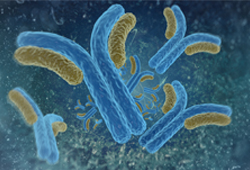 Below are some highlights of recent news in biosimilar and follow-on biologic development:
Below are some highlights of recent news in biosimilar and follow-on biologic development:
Prestige BioPharma
On July 2, Prestige BioPharma (Prestige) licensed the rights to Tuznue, its trastuzumab biosimilar of Roche’s Herceptin, to Mundipharma in selected European markets. The European Medicines Agency (EMA) recently accepted a Marketing Authorisation Application for Tuznue based on positive results from global clinical trials demonstrating biosimilarity of Tuznue to Herceptin in terms of clinical response, pharmacokinetics and safety profile. On July 8, Prestige announced that they were also entering into an agreement with Pharmapark LLC to commercialize Tuznue in the Russian Federation. According to Prestige CEO Dr. Lisa S. Park, the partnerships are important steps toward Prestige’s ultimate goal of making Tuznue available globally.
Also on July 8, Prestige announced the results from a phase I clinical trial comparing its biosimilar candidate HD204 to US and EU-licensed Avastin (bevacizumab). According to the press release, the double-blind, randomized study in 119 healthy male volunteers “demonstrated that HD204 is bioequivalent to [Avastin] after a single IV infusion at 1 mg/kg.” A global phase III study is also underway in patients with metastatic or recurrent non-squamous non-small cell lung cancer, and Prestige has indicated it plans to file applications for HD204 with the European Medicines Agency and the FDA in 2020.
Innovent Biologics
At the June 4 ASCO Meeting in Chicago, Innovent Biologics, Inc. (Innovent) presented data from several studies. First, Innovent presented on the ongoing ORIENT-4 Phase II clinical trial evaluating the efficacy of sintilimab, a human anti-PD-1 antibody co-developed with Eli Lilly and Company (Lilly), in patients with relapsed or refractory extranodal NK/T cell lymphoma (r/r ENKTL). According to Innovent, the data showed a 68% objective response rate and 85.7 % disease control rate. Innovent published other “key findings” during the meeting, including results from efficacy and safety studies of sintilimab in combination with CAPOX (in gastric or gastroesophageal junction carcinoma (GC/GEJC) patients), PD-1 blockade (in patients with resectable squamous NSCLC), and chemotherapy (in advanced or metastatic NSCLC patients).
Innovent also reported on its development of IBI305, a biosimilar candidate to bevacizumab, stating that a phase III trial in advanced non-squamous NSCLC patients as first-line treatment “demonstrates the therapeutic similarities between IBI305 … and bevacizumab.” Innovent also reported that there was “no significant difference in safety profile and immunogenicity between the two experimental arms.”
Finally, on June 27, Innovent and Lilly also announced that the National Medical Products Administration (NMPA) in China accepted their NDA for IBI301, a co-developed biosimilar product of rituximab. This is the fourth NDA by Innovent that has been accepted by the NMPA.
Other Biologics and Biosimilars News
On June 28, the EMA announced that Amgen withdrew its marketing authorization application for ABP 710, its proposed infliximab biosimilar for the treatment of inflammatory diseases, because of a “change in product strategy for ABP 710.” Amgen had already submitted laboratory studies to show that ABP 710 was “highly similar to that in Remicade in terms of structure, purity, and biological activity,” and had submitted clinical trial data to the EMA intending to confirm that ABP 710 was as safe and effective as Remicade in treating moderate to severe rheumatoid arthritis.
On July 4, the Russian company Biocad announced that its ‘similar biologic’ to rituximab, Acellbia, was recommended for approval in India based on positive results from several safety and efficacy studies in international clinical trials. Acellbia was approved in Russia in April 2014 has already been authorized in seven countries.
On July 8, Biocon Sdn Bhd (Biocon) issued a notice stating that the FDA performed a pre-approval inspection of Biocon’s Insulin Glargine Drug Substance, Drug Product and Device assembly facilities. The inspection resulted in 12 observations on an FDA Form 483. A Form 483 is issued by the FDA when inspectors “observe any condition that in their judgment may constitute violations of the Food Drug and Cosmetic (FD&C) Act and related Acts.” Biocon stated that it intends to respond promptly with a Corrective and Preventive Action Plan, and does not anticipate any changes to the commercialization plans for Insulin glargine in the U.S.
Several phase III clinical trials have also been announced, including:
- “Compare the efficacy, safety and immunogenicity of proposed rituximab biosimilar DRL_RI with MabThera in LTB follicular lymphoma,” sponsored by Dr. Reddy’s Laboratories
- “Study investigating PK, PD, efficacy, safety and immunogenicity of biosimilar Denosumab (GP2411) in patients with postmenopausal osteoporosis,” sponsored by Sandoz
- “A study of SIBP-01 or CN-trastuzumab plus docetaxel and carboplatin in HER2 positive breast cancer,” sponsored by Shanghai Institute of Biological Products
- “Transplant antibody-mediated rejection: guiding effective treatments,” a study evaluating the addition of rituximab to standard of care in the treatment of antibody-mediated rejection in kidney transplant patients, sponsored by Imperial College London
Stay tuned to Big Molecule Watch for more updates on biosimilar and follow-on biologic news.
